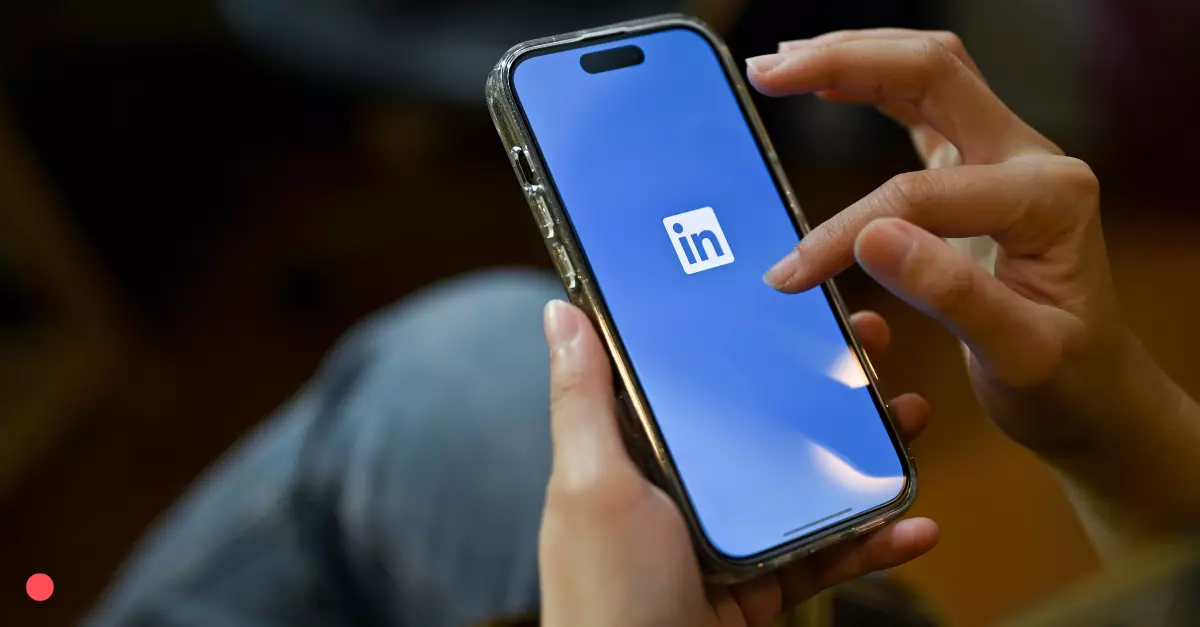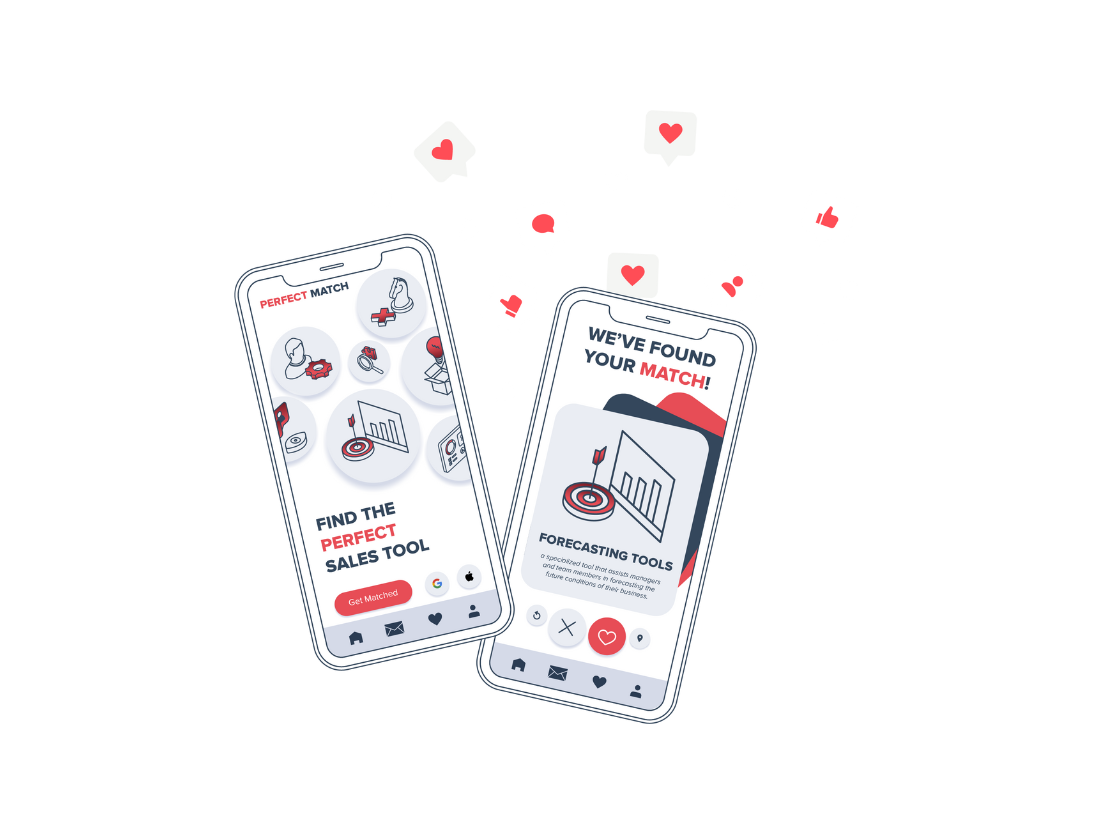In the modern sales process, trust is the most important factor. If your prospects trust you, they'll be much more likely to work with you and recommend your products and services to others.
Of all the professions in the world, marketers and salespeople are the least trusted to tell the truth. That's according to IPSOS' MORI Veracity Index report from 2018.
In the report, only 16% said they would trust advertising executives – a catch-all term for those in marketing and sales – to tell the truth. Nurses came out on top, with 96% of respondents saying they would trust them.
But the distrust of marketing and salespeople is well-known. Some would even argue it's well-founded.
And it's not surprising – especially when you think about how marketers and salespeople have been interrupting and pestering people for decades, forcing products and services onto them left, right and centre.
Fortunately, things nowadays are much different, and marketers and salespeople that interrupt and pester potential customers put their emails on a one-way track to the trash.
To engage with B2B sales prospects, marketers and sales professionals need to build trust in sales. Sales teams and sales reps play a crucial role in this sales process.
In this blog, I'm going to talk briefly about building trust in sales and why admitting you don't know something can be beneficial to your sales relationships.
Building trust and knowing when to say you don't have an answer
In our experience, explaining to prospective customers how you have helped others with similar problems and challenges will reassure them that you know what you are doing. This goes a long way to building a foundation of trust.
But at the same time, you also need to be prepared to put your hand up and say you don't have an answer when you don't have an answer.
It might sound counter-intuitive, but by admitting to clients early on that you don't know or don't have an answer to their question, you signal to them that you are open and honest. You also avoid the awkward situation where you say you can do something but can't.
That said, don't end the conversation there. Admit you don't know but follow up with something like: “I can get you in touch with someone that does.” At this point, you can refer the client to a colleague of yours that has an answer for them.
Using this approach ensures you don't lose the client and can demonstrate value across different areas of your business. Don't just say to your clients “I don't know…” say to them “I don't know, but I can put you in touch with someone that does.”
Why saying you don't know can help you when you do know
If clients know you are honest and open – when you do have an answer, prospects will be much more appreciative of your expertise and trust it.
Building trust is the most important part of the sales engagement process. If your prospects feel they can believe in what you have to say, it'll be much easier for you to get them on board and work with you, as well as demonstrate value.
Why empathy is key to building trust
Empathy in sales engagements is about understanding and genuinely addressing the unique needs and concerns of your potential buyers. Active listening is key; give your full attention, clarify their statements, and reflect back to show you understand.
Acknowledge their challenges and frustrations, and offer solutions that are specifically tailored to their situation. This approach goes beyond mere transactional interactions and builds a deeper business relationship.
It demonstrates that you are not just selling a product or service, but are genuinely invested in their success and well-being.
The importance of honouring the commitments you make
Reliability is a cornerstone of trust. Always keep your promises and adhere to commitments, whether it's delivering information, making a call, or sending a proposal. Meeting deadlines and following through on what you say you will do is crucial.
If unforeseen circumstances prevent you from meeting a commitment, communicate proactively and honestly with your prospect.
This behaviour not only showcases your professionalism but also reinforces your dependability, encouraging prospects to trust you and your brand.
Using social proof to build trust
Incorporating social proof effectively into your sales engagements can greatly enhance trust. Sharing testimonials, case studies, and positive reviews from satisfied customers provides tangible evidence of your competence and reliability.
It's not just about showing that others have trusted you, but also about demonstrating the positive outcomes you've helped achieve.
Tailor these examples to closely match your prospect's industry or situation to make it more relevant and impactful. Social proof helps mitigate scepticism and builds credibility.
How a consistent approach can make all the difference
Consistency in your approach, messaging, and values is key to building and maintaining trust. This means ensuring that your communication, behaviour, and service quality are consistent across all interactions with prospects and clients.
Inconsistencies can lead to doubt and undermine trust.
By being consistent, you help to build a predictable and reliable image for yourself and your organisation, making it easier for prospects to feel secure in their decision to work with you.
The power of showcasing your expertise
Demonstrating expertise is not just about showcasing your knowledge and experience, but also about providing value through insights, trends, and data that can help your prospects in their decision-making process.
Regularly share industry updates, thought leadership articles, and case studies that highlight your understanding and expertise. This positions you not just as a salesperson, but as a valuable resource and advisor in your field.
Being a source of relevant, up-to-date information makes prospects more inclined to trust and rely on your recommendations.
Starting new relationships
Through trust comes relationships, the holy grail of all sales engagements. Is this something you have done subconsciously? Is this something you agree with? Is this something you would never do?
Either way, the truth remains that if you don't or can't answer a prospect's question, they'll go to someone who can. Better to own that conversation, direct them to someone who can and provide them with any other information they need.
In the age of inbound sales, helping takes priority over hard sales tactics. Buyers are more educated, have more choice, and can access huge resources (i.e. the internet) to check on what you are saying, so you can't just ‘wing it'. You can't.
My advice? Admit it when you can't answer something and find someone in your business that can. It will help more than you will know.
How Huble can help you develop trust in your sales process
In the dance of sales and customer relationships, the foundation of trust is paramount. The principles we've discussed are not just theoretical; they are practical, actionable, and immensely impactful when applied correctly in your sales engagements.
This is where Huble comes into the picture. We specialise in sales consultancy services, designed to help your business develop a robust and effective sales process.
Our approach is centred on building trust with your prospects, ensuring that every interaction with them adds value and strengthens your business relationship.
Our team of experienced sales professionals and consultants understands the nuances of trust-building in sales. We tailor our strategies to meet the unique needs of your business and your prospects.
Speak with our team today to learn more and see how we can help you achieve sales success.













